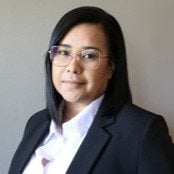

General counsel | Nelson Mandela Foundation



Tamryn Sass
General counsel | Nelson Mandela Foundation
What are the most significant cases and transactions that your legal team has recently been involved in?
The Foundation’s purpose is centred around mobilising the legacy of Nelson Mandela to create a just society by dismantling intergenerational poverty and inequity. To achieve our intended purpose, the Foundation is geared towards change for justice, employing three intersecting modes of societal engagement.
First being engagement rooted in memory, shaped by robust research and analysis, and bringing a quality of authenticity, trust, and responsibility concerning the legacy of Nelson Mandela. Second, engagement pursued dialogically, with a focus on bringing people together to identify sustainable solutions for intractable societal problems, and a commitment to exploring social bonding praxis. Third, engagement in the realm of ideas and advocacy, dedicated to enabling systemic change, and determined to avoid being trapped in oppressive modes, apparatuses, and idioms.
Against this backdrop, the Foundation identifies its strategic focus areas and the programmatic work supported by the Legal and Governance function.
The most recent and significant case in which the Foundation has played an integral part is the Apartheid Flag case, which was heard in the Supreme Court of Appeal. The court found that the gratuitous displays of the ‘old Apartheid flag’ constitute hate speech, an outcome that strongly aligns with the aforementioned points. However, I must inform you that at the initiation of this matter, I was not yet a part of the Foundation. I have only been with the Foundation for approximately 14 months, but it is important that this matter be documented, as it directly pertains to the type of litigated work we undertake and the matters that we support.
In addition to matters of this nature, the function also provides expert and strategic legal advice to the Board and executive management team. This involves proactively coordinating, supporting, and facilitating the delivery of governance and legal activities for the organisation, including company secretarial support, legal and governance assistance, and management of the Intellectual Property of Nelson Mandela and the Nelson Mandela Foundation, both locally and internationally. We also handle risk management.
Looking forward, what technological advancements do you feel will impact the role of in-house legal teams in the future the most? Which have you found most useful in your legal team?
There is a constant battle and balance that one must strike between high-quality outputs, increased efficiency, and the cost of resourcing. The demand to resolve instructions over shorter periods of time, without compromising on the quality, continues to increase while facing material budgetary constraints. This forces one to think more innovatively and strategically around key priority areas of the department, the adopted business model, the use of technology, and the types of partnerships that one fosters with various industry experts.
In addressing these demands, I believe that in-house legal teams will increasingly rely on legal technological tools and automation platforms to streamline repetitive, routine and time-consuming tasks. I believe that the dependence on data analytical tools and predictive analysis will substantially increase and become the backbone of legal functions. This shift is driven by the growing demand for the identification of patterns, trends, and potential risks, as well as the ongoing pressure to reduce costs.
What are some of the key developments that have affected your business over the past year?
Like many other non-profit organisations (NPOs), we find ourselves navigating an ever shifting and unforgiving funding environment that is directly influenced by legal, geopolitical, and other factors. This has a direct impact on the sustainability of NPOs, which I believe have a critical role to play in society, especially now given the growing need for the recognition of our shared humanity in the poly crises we find ourselves in globally.
In light of this, an NPO must evaluate its relevance, agility, sustainability, and alignment with its purpose, as the operating environment is constantly changing.
Consequently, it is imperative that we continue building and protecting of our brand. This is essential in building trust and the fostering authentic relationships with our donors and stakeholders. This importance is linked to my initial point of our intersecting modes of societal engagement, which calls upon us to engage in a manner rooted in memory, shaped by robust research and analysis, and bringing a quality of authenticity, trust, and responsibility in relation to the legacy of Nelson Mandela.
Regarding the above, the legal and governance function plays a vital role in driving and supporting initiatives to tackle external challenges.